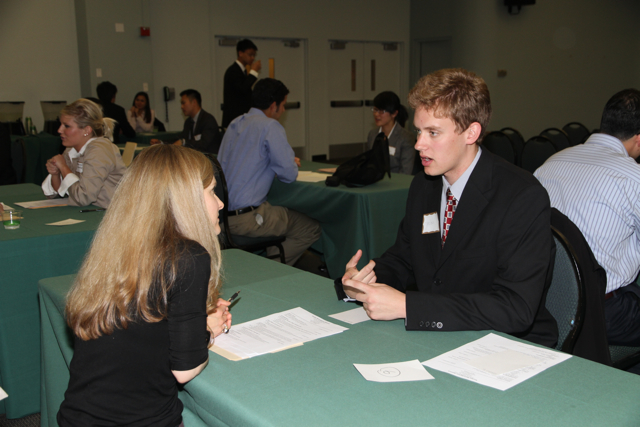Heading towards the end of my fifth decade, I have done many job interviews during all those years, for various roles and in a variety of industries - some I got, some I didn't, and some I didn't want when the interview was done. I have also interviewed a number of people, both in recruitment and also as an employer, so I want to give you my thoughts from someone who has sat on both sides of the job interview desk, as interviewee and interviewer.
The Q&A
One job interview that stands out for me was for a more senior role at the local council at which I was working a number of years ago. The interview was held before a panel of three: an HR manager, the line manager, and the senior manager - in whose office the interview was being held. The interview lasted about forty-five minutes and was structured around a traditional question and answer session - the format in which most job interviews are still held worldwide.
"If you are as good as you say you are ...?"
I felt that the interview was going well and I had answered all of the questions fully and competently, or so it seemed to me, and I knew that my previous experience and qualifications exactly met the job specification. However, at a certain point in the proceedings, the senior manager interjected, he puffed out his chest and pushed himself back on his padded chair and then declared, “If you are as good as you say you are, why haven’t you got any higher than your current position?”
In cricket, that is what is called being bowled a ‘googly’: basically a ball that throws you completely off guard! His fellow panel members looked at him askance and with undisguised incredulity, although his reputation as a blunt speaker was well-earned and with good reason. I retained my composure and answered him that I thought that suitable opportunities had not arisen before this one and I was now ready and eager to move up.
Perhaps without the benefit of the body language and the nuance of the tone of voice, then this question might not seem so bad to some people. However, what it suggested to me, as a candidate, was that having made a good case for why I was suitable for the role, I was now being asked to account for why I hadn't already secured a post of this type, which was unfair. It also telegraphed very clearly that the interviewer was not favourably disposed to me and, to a more sensitive person than I, it might even have come across as rude.
Poor Interviewers
I could give you plenty of other examples: the interviewer who kept calling me by a different name, the ones who had the wrong CV, the job that didn't even exist, or the post that had already been filled and ‘didn't someone let you know?’ etc. etc. Or the interview for a sales role that was preceded by an hour of psychometric testing. When the interview properly began the interviewer proceeded to read out the scores from the test and he advised me that I had scored the highest in verbal reasoning of all the candidates that they had seen for this or any other role. Thinking that this must be a good thing, the manager then fixed me with an unsmiling gaze, staring over the rim of his glasses he proclaimed that, “it never pays to be smarter than the boss!” Needless to say, I didn't get that job either.
The reason I mention this is not to air some ancient grudge, although I probably felt hard done by at the time, but to illustrate the fact that the majority of interviewers are not well-versed in the skills of interviewing. The questions may be inept or insensitive or even downright offensive. Even after years of employment legislation you may not get the job, because of age, gender, or because you were the wrong person for the role, even though the interviewer might not be able to articulate why. You might also find that you are up against a shoe-in or some other favoured candidate, so no matter how well you interviewed, you were never going to get that job. There may also be some complicated internal politics of which you are unaware. In some cases the interviewer may have already made up their mind about you before you have even released the welcome handshake.
Reflect and stay positive
There are plenty of posts and books that tell you about how to approach and prepare for job interviews, but here I have a simple message: I want you to realise that you won’t always get that job, even if you have done everything right. The important thing is never to take it as a personal judgement on you and your own abilities and suitability and don’t let it get you down. Always reflect on what you did right, and what you did wrong, and identify what you might do differently next time. And to paraphrase the Serenity Prayer, “grant me the serenity to accept the things I cannot change, the courage to change the things I can, and the wisdom to know the difference.” Don’t take it personally, stay positive, and keep going!
What are your experiences of job interviews that went well, or not so well, and what did you learn?
Written by Will Trevor, Founder and Training Consultant and Windsor Training: will.trevor@windsortraining.net
Picture Credit: By bpsusf (http://www.flickr.com/photos/usfbps/4607149870/) [CC-BY-2.0 (http://creativecommons.org/licenses/by/2.0) or CC-BY-2.0 (http://creativecommons.org/licenses/by/2.0)], via Wikimedia Commons


No comments:
Post a Comment